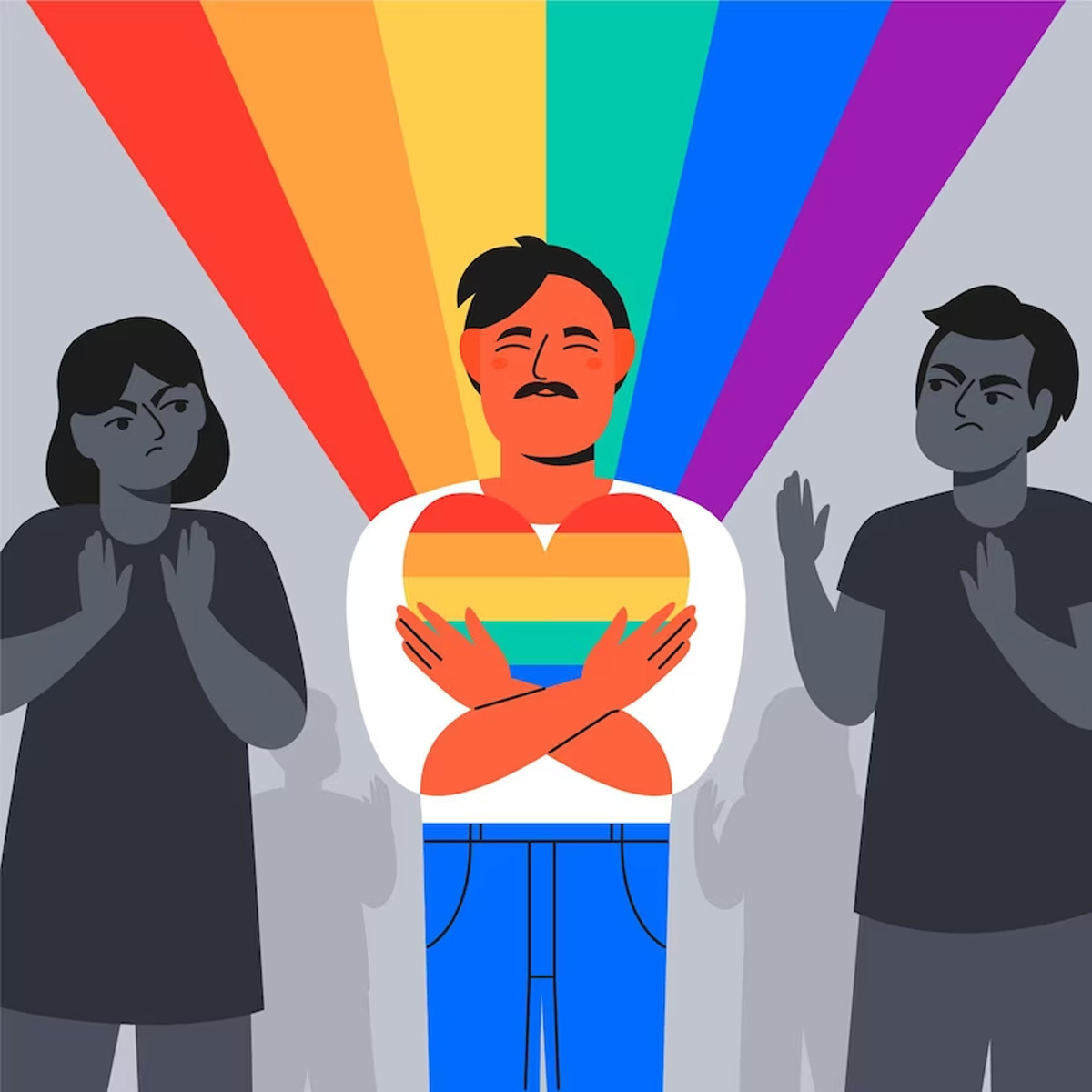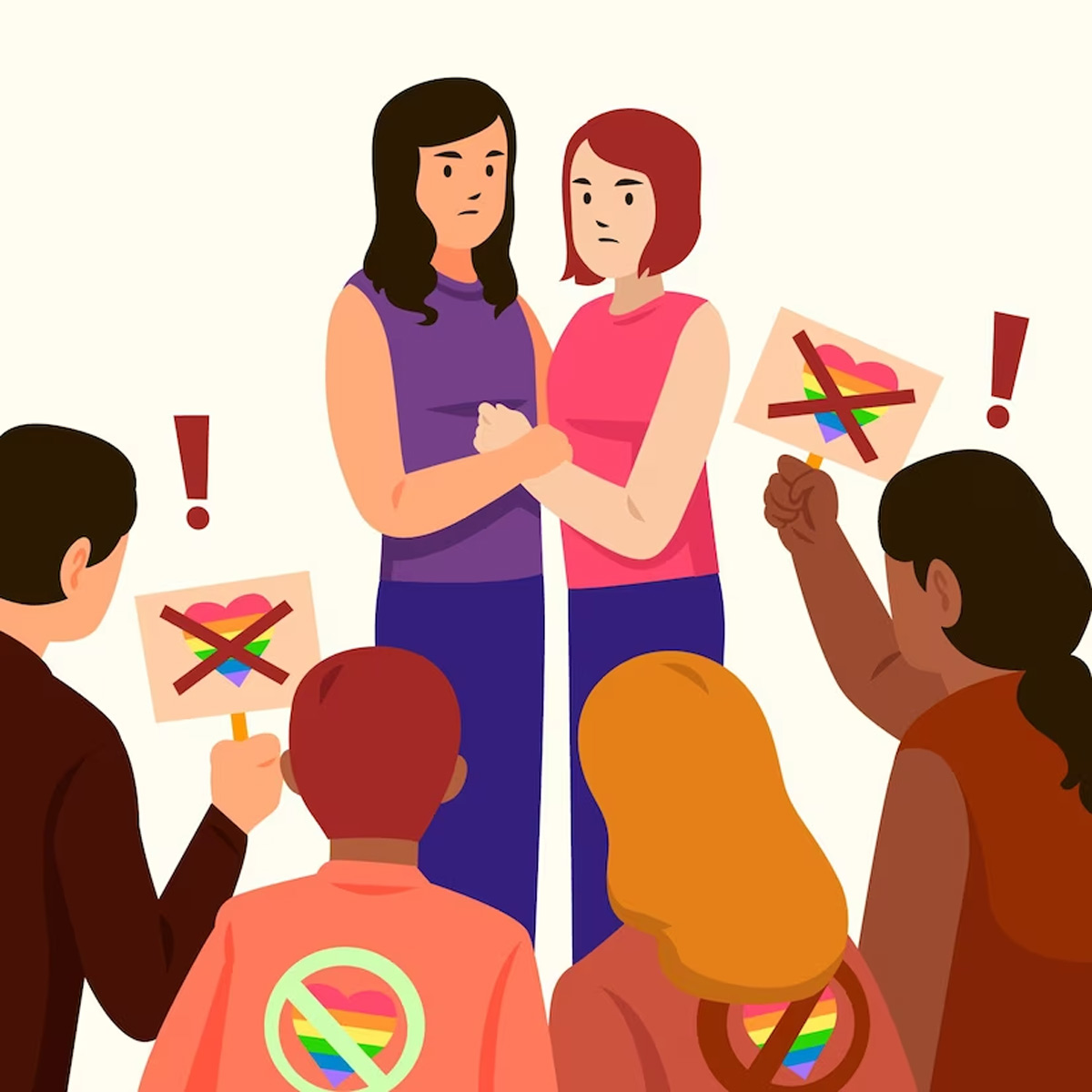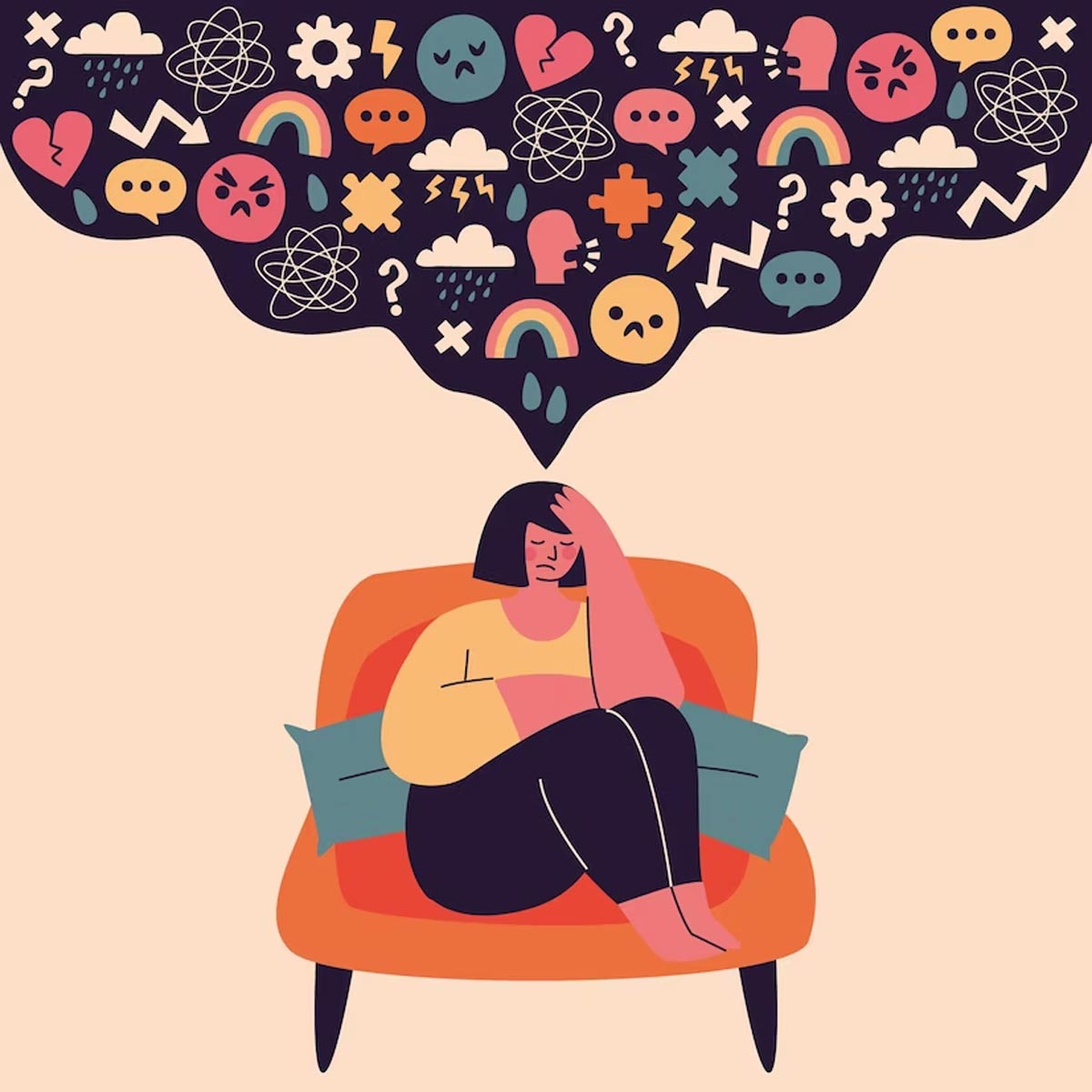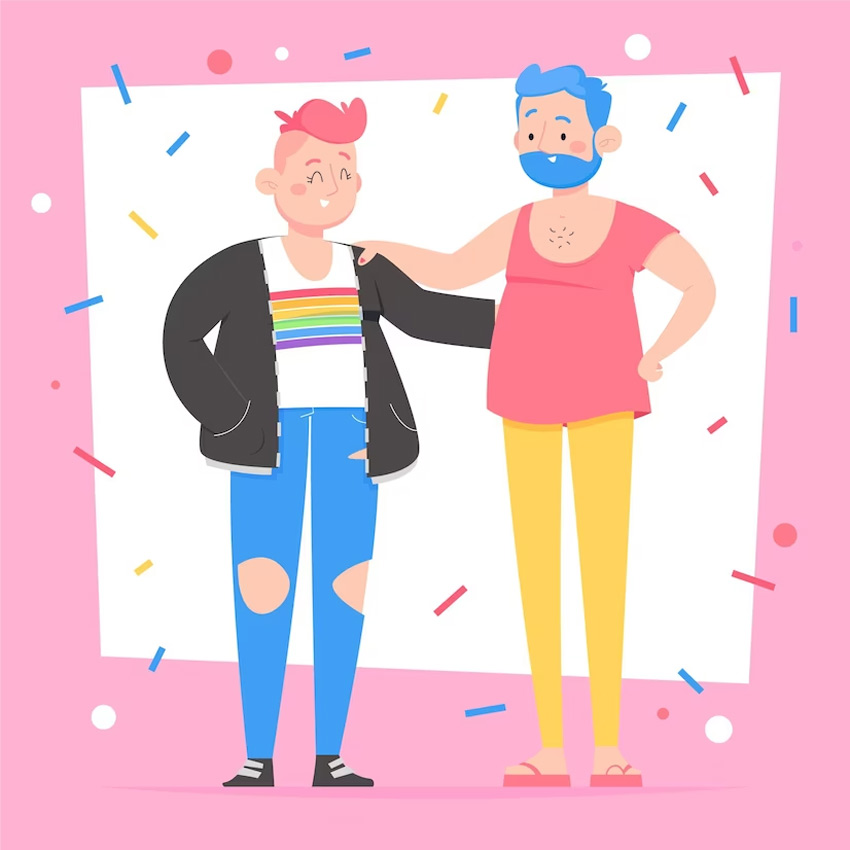
‘Queer’ and ‘LGBTQ+’ are terms with which people associate negative words like ‘not normal’, ‘eccentric’, and ‘different’ among others. They are picked on, receive backlash and are bullied. They isolate themselves because a conservative society does not make them feel safe about their identity or sexual orientation.
Our idea of ‘normal’ has often made people from the queer community feel something is wrong with them. Since mental health is still a taboo in our society, it becomes even more difficult for the LGBTQ community to seek help from professionals.
A 2016 report by the Centers for Disease Control and Prevention (CDC) stated that gay, lesbian, and bisexual youth have suicidal thoughts three times more than heterosexual people. The same study said that 34% of LGBT youth experienced bully at school, and 18% experienced sexual assaults. This data belongs to the US, and it is difficult to find in a country like ours.
We connected with Dr Chandni Tugnait, psychotherapist and life coach, to identify and address the mental health and emotional struggles of people belonging to the LGBTQ+ community.

In the struggle to accept their identity and emotional turmoil, people from the queer community are affected by substance abuse. They often resort to alcohol or drugs, said Dr Tugnait.
People from the LGBTQ+ community experience suicidal thoughts and tend to cause self-harm. “Discrimination, rejection, and social isolation are the leading causes for this issue,” added the psychotherapist.
Patients with depression and anxiety are more in the queer community as compared to heterosexual individuals because they experience discrimination, fight social stigma, and many have to bear the burden of hiding their identity.
Dr Tugnait explained that people from the queer community struggle with body image issues and the pressure to look and behave a certain way. It has often been found that these issues can lead to eating disorders, which are also associated with internalised homophobia and shame.
In an event of bullying, assault and other hate crimes, any person is bound to experience Post-Traumatic Stress Disorder (PTSD). Unfortunately, people from the LGBTQ+ community experience such crimes quite often. They suffer from nightmares, recurring distressing memories, and heightened anxiety.

Dr Tugnait said that the journey of self-discovery and accepting one’s identity can be challenging. Aarish Gazi, a 19-year-old student in Delhi, said, “Coming out as bisexual was not easy; it was an arduous and introspective journey, one full of confusion and self-doubt.”
The struggles include:
Many teenagers who identify with the queer community live in fear of getting rejected by family, friends, and peers. It can be overwhelming for them. It can increase their chances of stress and anxiety.
The psychotherapist said teenagers often need support from their families. If a child struggling with their identity does not get support from their immediate family members, teachers, and friends, it can hamper their journey towards self-acceptance. "There is constant pressure of performing according to the label imposed by society. Family is our first exposure to society, and our loved ones follow the social norms ardently," Ankit* added.
Internalised homophobia refers to negative beliefs people hold against their identity because they were brought up to believe that only heterosexual men and women are ‘normal’. Dr Tugnait said that it can contribute to self-hatred and shame.
Many teenagers who identify with the pride community question their identity, which leads to confusion in their minds. “Society’s heteronormative expectations and limited representation of queer individuals make it difficult for adolescents to embrace their identities,” added Dr Tugnait.
Gazi shared that it was difficult for him too. However, after he started going to college, he realised that there were a lot of other individuals like him who were struggling to embrace their identities.
“And that is how I found the courage to accept myself for who I am and come to terms with the fact that yes, I’m not straight, and there’s nothing wrong with that,” he added.
Don't Miss: How To Be An Effective LGBTQ Ally

In a country like India, many queer people prefer to hide their identity from their parents because they come from a conservative family. The psychotherapist said that the anticipation of transphobia and homophobia can lead to psychological and emotional challenges.
Keeping one’s identity hidden from loved ones can be a huge emotional burden for an individual to experience. They may feel compelled to live a double life and always filter self-expression. Ankit* shared, "I am often told my mentally sick when I say I won't marry or settle down in the conventional sense. It corners me and I shout often. Misunderstanding, verbal spats, and the willingness to run away from my dear ones is high."
Hiding identity can lead a person to isolate themselves. It can make a person feel lonely. It often stems from a desire for acceptance and a fear of rejection.
When a person is hiding their identity, they live in constant fear of being discovered. It can increase the level of stress and anxiety. Dr Tugnait said that it can be an emotionally draining experience. "There's, nothing but stress and anxiety. I have been out to my friends so it is less taxing around them," added Ankit*.
Don't Miss: Tracing the Remarkable Journey of Pride Month
Hiding identity leads to a lack of agreement between private and public personalities. The psychotherapist explained that living a double life can lead to feelings of inauthenticity.
It can lead to limited self-growth, psychological distress, and suppression of the authentic self. The environments that are meant to be safe are often discriminating towards people from the LGBTQ+ community.
Discrimination against queer people leads to low self-worth and increased risks for depression (How To Help Someone Suffering From Depression) and anxiety. PTSD can develop and make it difficult for a person to grow.

If you like the story, stay tuned to HerZindagi for more.
Disclaimer: * means names have been changed to protect the identity of the person.
HerZindagi Pride Month: Redefining narratives, fostering awareness and a world of inclusion with thought-provoking stories around LGBTQIA. Get more awareness about LGBTQIA (Pride Month) by reading inspiring stories that will help you to open up without hesitation. #LivingWithPride
Also watch this video
Herzindagi video
Our aim is to provide accurate, safe and expert verified information through our articles and social media handles. The remedies, advice and tips mentioned here are for general information only. Please consult your expert before trying any kind of health, beauty, life hacks or astrology related tips. For any feedback or complaint, contact us at [email protected].